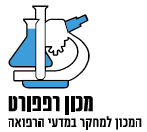
Prof. Ohad Birk
Established researcher
A physician-scientist combining basic science and its effective implementation in disease prevention and treatment, Professor Birk is well recognized as a leader in human genetics of rare diseases. Following MD studies at Tel Aviv University, PhD at the Weizmann Institute, and residency in pediatrics at Sheba Medical Center, Birk did his post-doc and clinical genetics training at the NIH. A recipient of numerous awards, Birk has headed the clinical Genetics Institute at Soroka Medical Center (2001-2024) and at Sheba Medical Center (from 2024), as well as the Morris Kahn Laboratory of Human Genetics and Israel's National Research Center for Rare Diseases at Ben Gurion University.
Ohad has made extraordinary contributions to the field, unraveling the molecular basis of ~50 diseases (five are named after him), including some of the most common hereditary diseases in Arabs worldwide and in Sephardi Jews, as well as Birk-Barel genomic imprinting syndrome and monogenic forms of common human diseases.
His implementation of the findings in disease prevention programs facilitated ~30% reduction in infant mortality in Bedouins and near-eradication of some of the most common severe hereditary diseases in Sephardi Jews.
Ohad's work, training nearly 40 graduate students (much of the backbone of human genetics in Israel), is outstanding not only in the scope and impact of achievements but also in the depth of the science: unusual for a human genetics lab, mutant mice, zebrafish, Drosophila, and iPS disease models are generated and studied in-house, thoroughly delineating novel molecular pathways of development and biochemistry in health and disease, unraveling novel drug targets. Ohad, a prolific scientist and an active clinician, leads both the research and its bench-to-bedside implementation in massive disease prevention.



